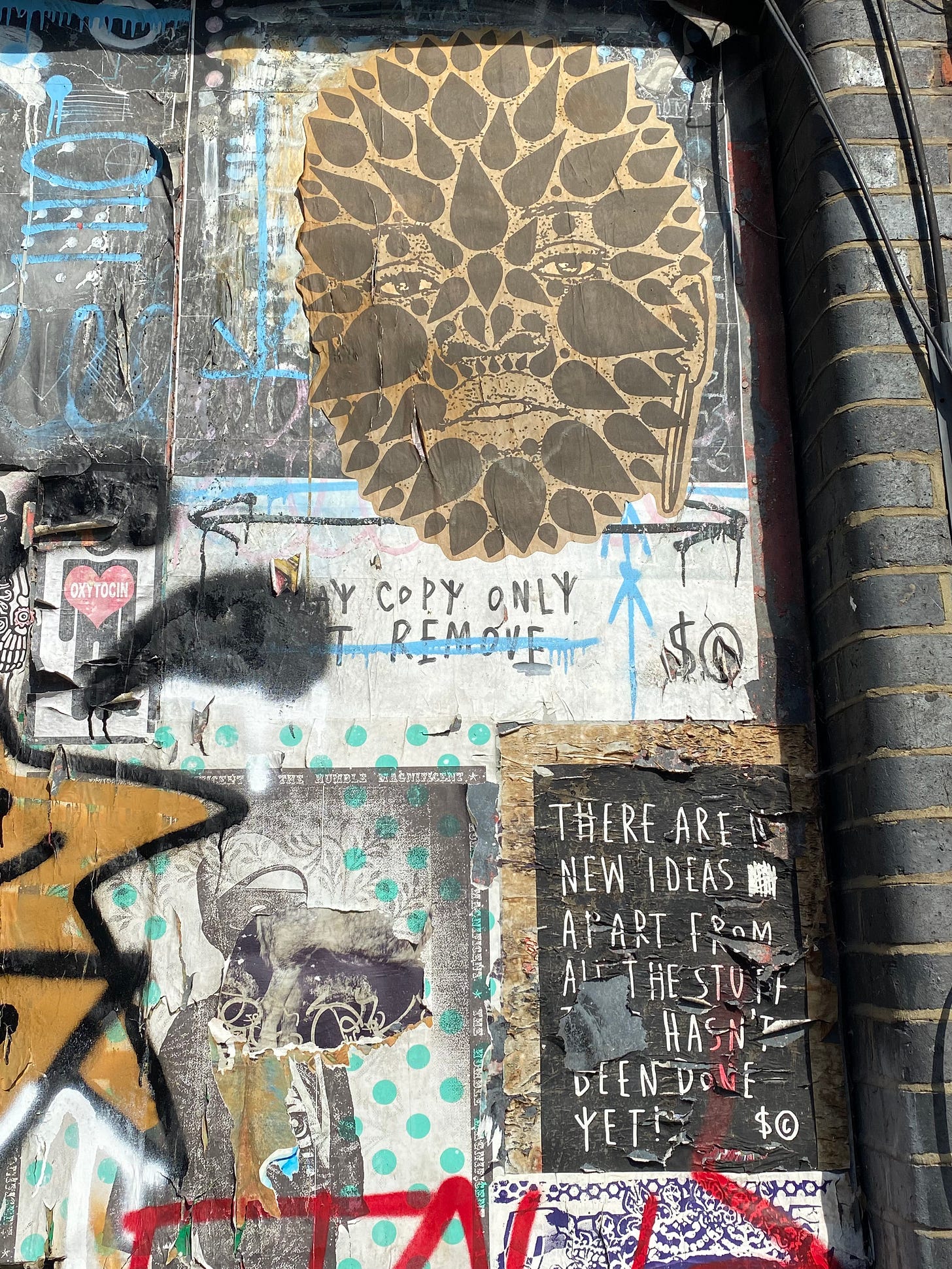It’s been so long since I wrote an essay I’m not sure I remember how.
At least, that’s what I told myself before I remembered this is what I do. Words string themselves together in my head. The trick is getting them down fast enough.
Pin down the words, and you can re-examine them later. Spot the patterns.
Come on now, one word in front of the other. Baby words.
It’s all just a mish-mosh unless you find meaning in the madness.
It’s getting colder, the seasons are changing. A full moon has just been and gone.
Telephone wires bristle thick with rooks. They settle and disperse, like leaves flung skyward.
People too, settle and disperse. Keep it moving. Faces cycle in and out: colleagues, neighbours, friends.
Around here, I find meaning in a long walk, or a long cycle, or a good book.
Books on my shelves have the timeless air of trees. They frame my life unmoving, a constant source of joy.
They will outlive me, the books and the trees.
My neighbour—from last year’s moon walk—told me he shares bo…




